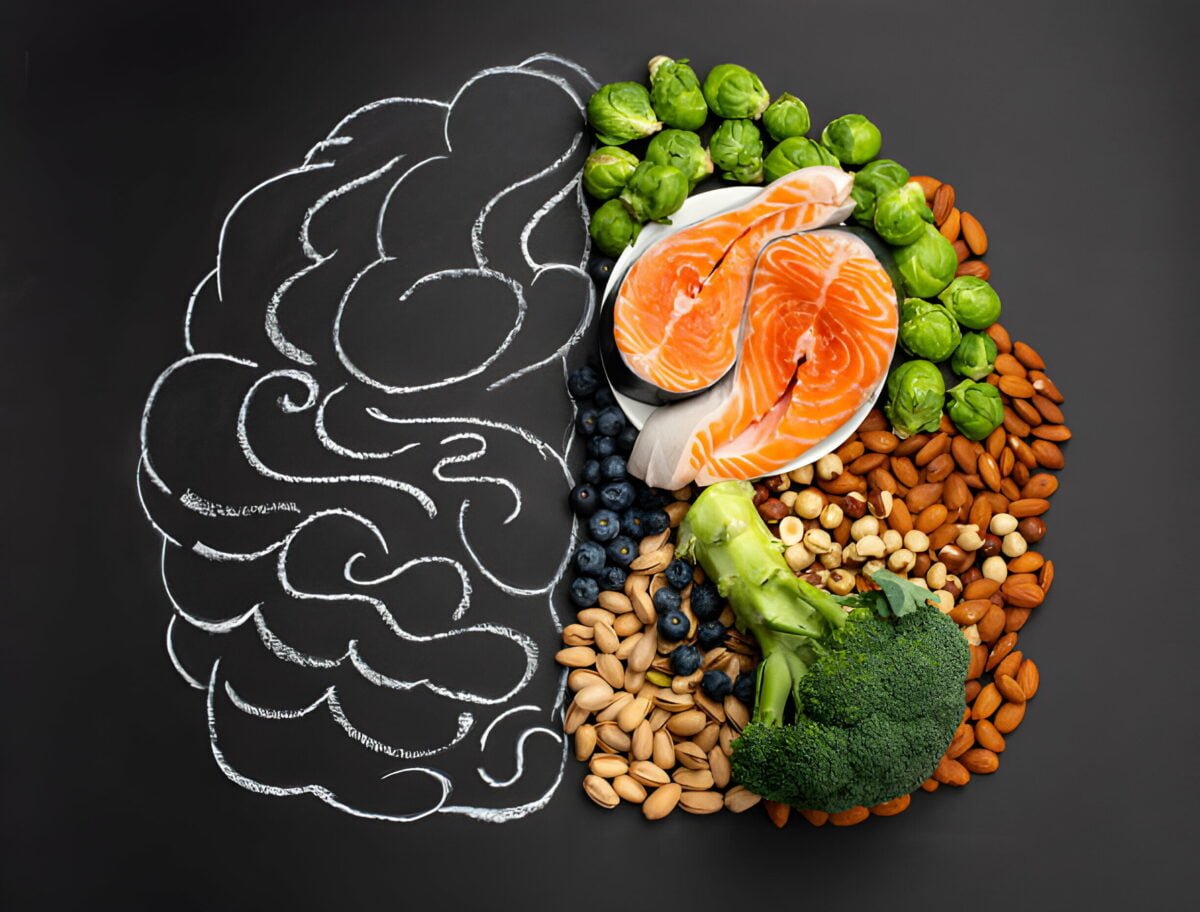Impact of nutrition on mental health is of significant importance. What we eat affects brain function and mood stability. Poor nutrition can contribute to conditions like depression and anxiety. Conversely, a balanced diet supports cognitive function and emotional well-being. Research shows a strong correlation between nutrient intake and mental health outcomes.
A study found that individuals with diets high in processed foods had an increased risk of depression. Understanding the link between nutrition and mental health is crucial for promoting overall wellness. Making informed dietary choices can positively impact mental well-being, enhancing quality of life and productivity.

The Impact of Nutrition on Mental Health You May Need To Know
Nutrients and Brain Function
Omega-3 fatty acids found in fish, nuts, and seeds are crucial for brain development and cognitive function. They support the structure of brain cell membranes and promote communication between brain cells. B vitamins play a vital role in neurotransmitter synthesis and regulation, affecting mood and behavior. Vitamin D helps regulate serotonin levels, which influence mood, while zinc is essential for maintaining brain health and cognitive function. These nutrients work together to support optimal brain function and mental well-being.
The Gut-Brain Connection
The gut-brain axis refers to the bidirectional communication between the gut and the brain, mediated by neural, hormonal, and immunological pathways. The gut microbiota, composed of trillions of bacteria, plays a crucial role in this connection.
These bacteria produce neurotransmitters such as serotonin, dopamine, and gamma-aminobutyric acid (GABA), which influence mood, cognition, and behavior. The gut microbiota communicates with the central nervous system, affecting stress response, inflammation, and neurotransmitter production. Thus, maintaining a healthy gut microbiota is essential for promoting mental health and well-being.
Dietary Patterns and Mental Health
The Mediterranean diet, characterized by high consumption of fruits, vegetables, whole grains, legumes, nuts, seeds, and olive oil, has been associated with a reduced risk of depression and anxiety. This dietary pattern provides essential nutrients such as omega-3 fatty acids, vitamins, minerals, and antioxidants, which support brain health and function.
In contrast, diets high in processed foods, sugar, and saturated fats have been linked to an increased risk of mental health disorders. These foods can lead to inflammation, oxidative stress, and imbalances in neurotransmitter levels, negatively impacting mood and cognition. This definitely explain the impact of nutrition on mental health!
Nutritional Deficiencies and Mental Health Disorders
Deficiencies in specific nutrients have been implicated in the development and exacerbation of mental health disorders. Mental health conditions for example, low levels of omega-3 fatty acids have been associated with an increased risk of depression and cognitive decline. Similarly, deficiencies in B vitamins, particularly folate, vitamin B12, and vitamin B6, can impair neurotransmitter synthesis and regulation, contributing to mood disorders such as depression and anxiety.
Inadequate intake of minerals like iron, zinc, and magnesium has been linked to mood disturbances and cognitive deficits. Addressing these nutritional deficiencies through dietary changes and supplementation may help improve mental health outcomes.

The Role of Antioxidants
Antioxidants are molecules that neutralize harmful free radicals in the body, reducing oxidative stress and inflammation. In the brain, oxidative stress can damage neurons and contribute to cognitive decline and mood disorders. Therefore, consuming foods rich in antioxidants, such as fruits, vegetables, nuts, seeds, and whole grains, is essential for maintaining brain health and supporting mental well-being.
Studies have highlighted the impact of nutrition on mental health, emphasizing the importance of a balanced diet rich in fruits, vegetables, nuts, seeds, and whole grains. Specific antioxidants, such as vitamin E, vitamin C, and flavonoids, have been shown to have neuroprotective effects, preserving cognitive function and reducing the risk of neurodegenerative diseases. Incorporating a variety of antioxidant-rich foods into the diet can help support overall brain health and protect against mental health disorders.
Hydration and Brain Function
Proper hydration is crucial for maintaining optimal brain function. The brain is composed mostly of water, and even mild dehydration can impair cognitive performance, mood, and concentration. When the body is dehydrated, the brain has to work harder to perform tasks, leading to decreased alertness and cognitive function.
Studies have shown that dehydration can impair short-term memory, attention, and decision-making abilities. Therefore, staying adequately hydrated by drinking water and other hydrating beverages throughout the day is essential for supporting mental clarity and overall cognitive function.
Nutritional Interventions in Mental Health Treatment
Nutritional interventions have emerged as promising adjunctive treatments for various mental health disorders. Dietary modifications, supplementation with specific nutrients, and gut health interventions have shown potential to improve symptoms of depression, anxiety, and other psychiatric conditions. For example, omega-3 fatty acid supplementation has been found to reduce depressive symptoms and improve mood in some individuals.
Similarly, studies have shown that certain probiotics can positively influence mood and anxiety levels by modulating the gut microbiota and reducing inflammation. Nutrient-rich diets, such as the Mediterranean diet, have been associated with better mental health outcomes. Integrating these nutritional interventions into comprehensive treatment plans may help enhance therapeutic efficacy and improve overall well-being for individuals with mental health disorders.
The Importance of a Balanced Diet
Understanding the impact of nutrition on mental health is of great value. A balanced diet that includes a variety of nutrient-dense foods is essential for supporting both physical and mental health. Fruits, vegetables, whole grains, lean proteins, and healthy fats provide the essential nutrients needed for optimal brain function and overall well-being. Consuming a diverse range of foods ensures that the body receives adequate vitamins, minerals, antioxidants, and other bioactive compounds that support mental health.
Prioritizing whole foods over processed and refined products helps reduce the intake of added sugars, unhealthy fats, and artificial additives, which can negatively impact mood and cognition. By adopting a balanced diet rich in nutrient-dense foods, individuals can nourish their bodies and minds, promoting mental resilience and reducing the risk of mental health disorders.
Conclusion
Nutrition plays a significant role in mental health, influencing brain function, mood regulation, and overall well-being. By adopting a balanced diet rich in essential nutrients and supporting gut health, individuals can promote mental resilience and reduce the risk of mental health disorders. Integrating nutritional strategies into mental health care may become increasingly important for improving outcomes and enhancing overall quality of life.





